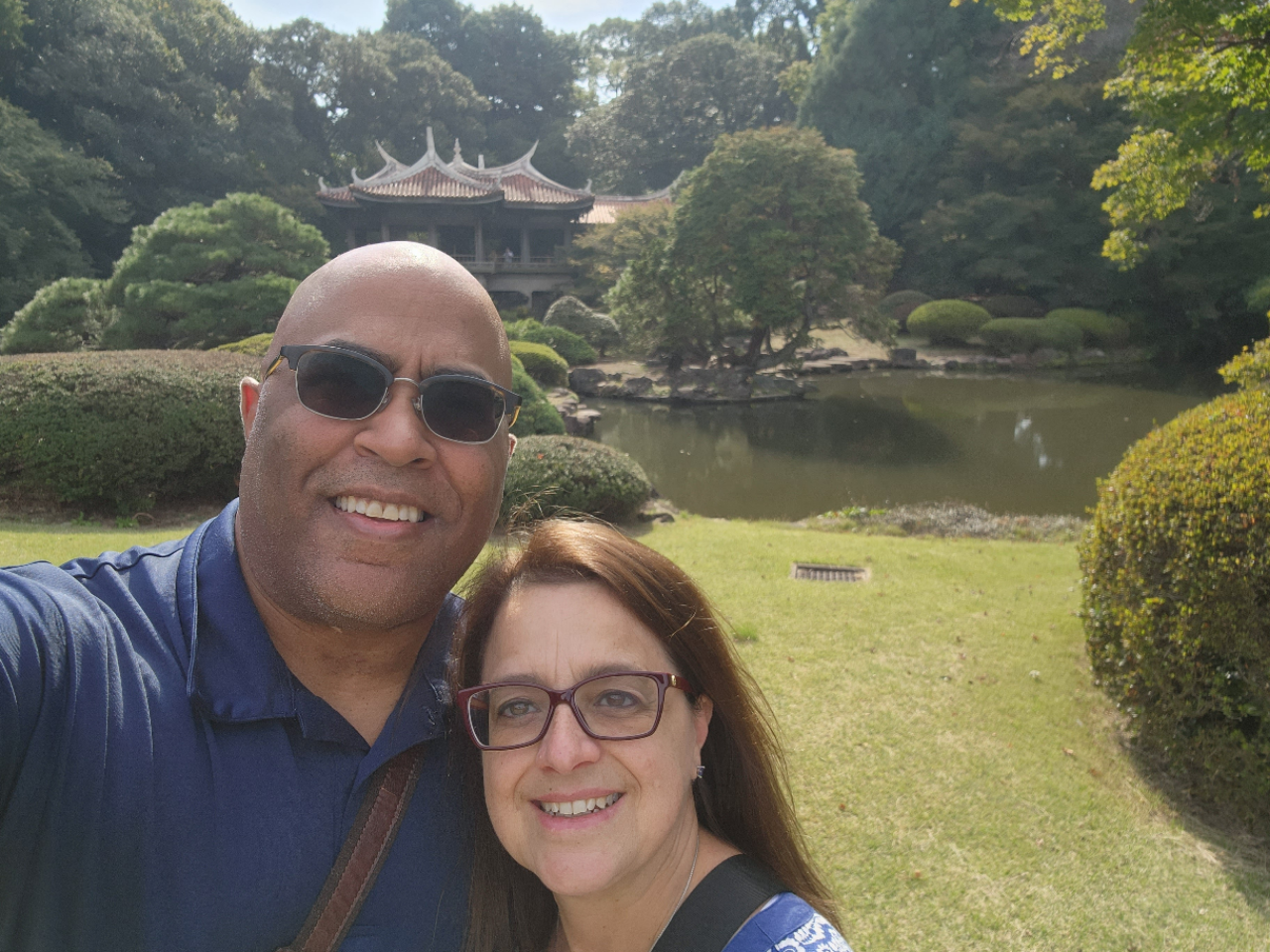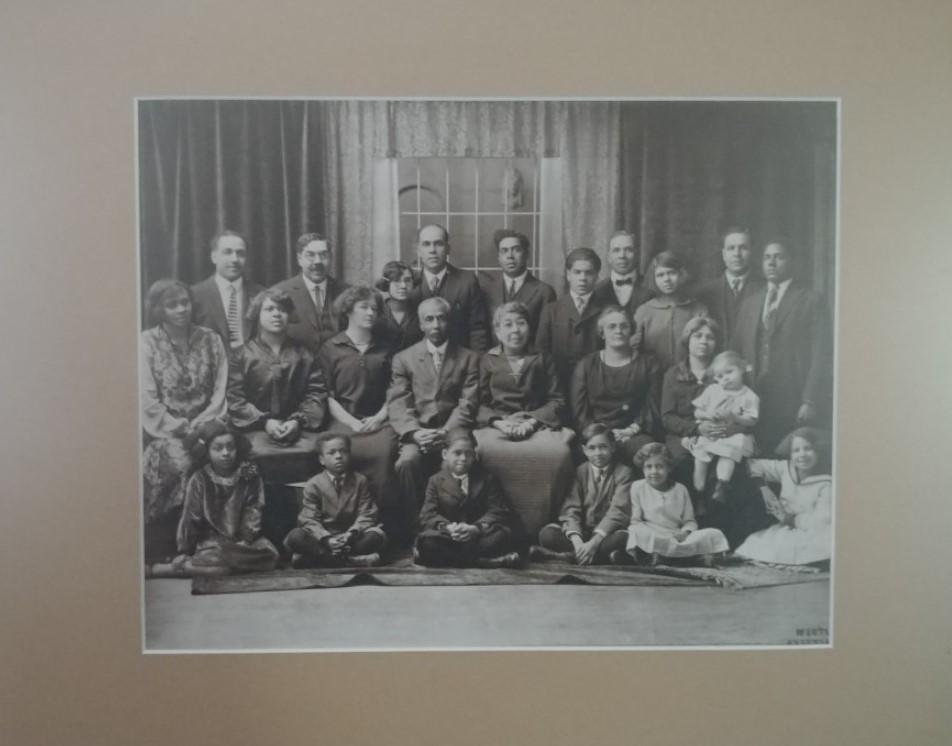







February 14, 2024
A childhood hobby of building model airplanes inspired Ernie Alligood to pursue a job in Air Traffic Control. Now, with 35 years of experience under his belt, he works hard to make sure everyone on his team feels like they belong, knowing their opinions are valued and respected.
“I don't think I could have ever expected to have such a fulfilling career,” says Ernie Alligood, Director of ACC Operations Central with NAV CANADA. “I've got 35 years and I'm having as much fun as I've ever had.”
In his current role, Ernie oversees all Instrument Flight Rules (IFR) operations for the Toronto and Winnipeg Flight Information Regions (FIRs)—meaning he and his team are responsible for the safety and efficiency of over 900,000 flights per year.
Driven by his passion—not just for aviation, but for people—and guided along by helpful leaders who have recognized his work ethic, passion, and abilities, his career has offered him a life he never would have imagined was possible as a kid.
“It was just my mom and I,” Ernie says, reflecting on his early life in St. Catharines. “I didn’t have any siblings. I played a lot of sports. High school for me was just as much about sports as anything else. Then I got to grade 13, and I didn't know what I wanted to do.”
It was a childhood hobby that eventually pointed him towards aviation. “Growing up, I was fascinated with putting together World War II airplane models,” he says. “I never wanted to fly at that time, but going through a career book in the guidance office, I read about Air Traffic Controllers.”
By early 1988, he made it to the first stage of training that’s required to get into the field but was unsuccessful. For some, this would be the end of the journey. But for Ernie, another opportunity presented itself.
“In the exit interview, the guy that ran the simulator—I'd met him through my journey there—said, ‘Look, in the fall we'll be hiring to run the simulators for training.’” He suggested that Ernie apply.
It wasn’t the original plan, but it was a start—and the start to a career path where he felt like he belonged. In October, 1988, he became a Simulation Support Specialist, with the intention of working hard and getting another chance to continue his ATC training. That opportunity came in February of 1991, and by the summer of 1992 he was fully qualified as an Area Control Centre (ACC) Controller in Toronto.
Starting out, it was impossible not to notice the lack of diversity in the workplace. “It was pretty glaring at the time with visible minorities, and also with women in the workplace” Ernie recalls. “It was challenging. Folks would make some comments.”
It was not unlike the experience he had growing up in St. Catharines, he says, which had a fair-sized minority population. “There were still challenges there. It's something that I've always been exposed to. Being here was no different.”
Looking back, it hasn’t defined how he’s felt about his work. "I've had great experiences,” Ernie says.
During the more than 25 years he spent as an ACC controller, Ernie’s responsibilities expanded from guiding aircraft to include training students, supervising teams, and going deeper into aspects like procedures, scheduling, and quality assurance. Eventually, he started considering a new challenge: a transition into management.
In 2017, he took the first step, moving into the role of Shift Manager. Less than two years later, Ernie was promoted to Manager of Operational Procedures and Proficiency for the Toronto FIR, which brought opportunities to get involved in bigger picture discussions. While in that role, he recalls attending a customer meeting where the General Manager for the FIR was going to be presenting.
“When I went into the room, he said, ‘Hey, do you have a seat? Sit down beside me.’” Turns out he was offering more than just a literal seat at the table. He asked for Ernie’s opinion, and after they chatted, “he tapped one of the VPs and said, ‘Ernie would like to be involved.’ And so I got involved with all these customer discussions on where we're going with the business and technology and so on.”
Ernie continued to progress in roles and responsibilities every one to two years, transitioning to his current Director title in March 2023. It’s a position that’s well suited to his skill and passion for helping others reach their potential. “I have a lot of fun,” he says. “I enjoy coaching. I really enjoy building a team.”

The leadership role puts him in a position of accountability, but even as “the gatekeeper,” Ernie makes it clear he wants everyone to feel like they belong and values their contribution.
“I've always tried to push the decision-making down to where it should be (exactly where NAV CANADA’s focus is now), and to let them know, I support you. I want them to come to work understanding that their opinion will be respected, and that they can make a difference on the service we provide in aviation in Canada.”
And in Ernie’s mind, everyone is on the team—from the most senior managers to the administration staff.
“To me, it doesn't matter what part of the business you're in. It's like a spoke in the wheel. When one of those people is gone, the wheel starts to fall apart,” he explains. “I really try and level the playing field so that everybody feels that they have an important say in what we do and how we do things.”
Ernie also encourages his team to “have some fun, and enjoy each other's company,” but admits his role can be stressful at times, “like every job.”
Fortunately, he’s witnessed improvements with respect to the lack of diverse representation he experienced when first starting out in his career, particularly for women. “That part has changed substantially,” he says, “and we are seeing changes as far as visible minorities and other diverse groups entering the workplace—but it's still a challenge."
Ernie believes a key issue is awareness. “Some of those folks, they just don't have the exposure and understanding that there’s actually an opportunity,” which he says often starts by having a conversation with someone already in the field. “They're not at places that we actively recruit at, or they don't have any relatives in the building. A lot of our folks have relatives here,” he notes, adding that his own eldest daughter is a Controller in Toronto.
As a sponsor of the Black Aviation Professional NetworkOpen a new window—a non-profit organization that aims to promote Black talent in the field of aviation and aerospace—NAV CANADA aims to help encourage and inspire Black youth to seek careers in the industries and provide mentorship and support.
Ernie hopes his own story can be an inspiration as well, “with some of the younger Black folks, especially.” He’s happy the school invites him to do “a little welcome intro” with all their new people. “I tell them about where life has taken me,” he says.
As much as he’s loved all he’s done at NAV CANADA, Ernie is equally grateful for the life it enabled outside of work.

“I coached basketball for about 30 years, and none of our three daughters played. I had time to do that play sports and raise a family. I've been married to my wife for 33.5 years.” He attributes a lot of this to the opportunities he’s had since starting his career in aviation.
“I feel very humbled in the position I'm in, very honored that the senior leaders have put a lot of faith in me to do a lot of the things I'm tasked with doing. From growing up as somebody that lived in low-income housing in St. Catharines with their mom, to see where we've gotten, I've lived a pretty good life. We haven't needed for anything,” he says. “What I'm taking away from the 35-plus years that I've had in this business—I would hope that everybody would be able to experience the same thing.”

Ernie still feels a strong connection to his roots in St. Catharines, which stretch back to when his family came to Canada through the Underground Railroad, getting away from slavery and becoming part of the Harriet Tubman movement. “With a lot of the older folks passing,” his family footprint in the city is shrinking, but “I still get together with a few other guys I grew up with, in the same area and the same housing complex, and we still talk about where we are, and just chuckle at the opportunities that life has blessed us with.”
At NAV CANADA, an inclusive culture with diverse people is about more than a checking a box. It’s about embracing the qualities and characteristics unique to each individual and the contribution they make to our business. Want to know how we’re doing this?